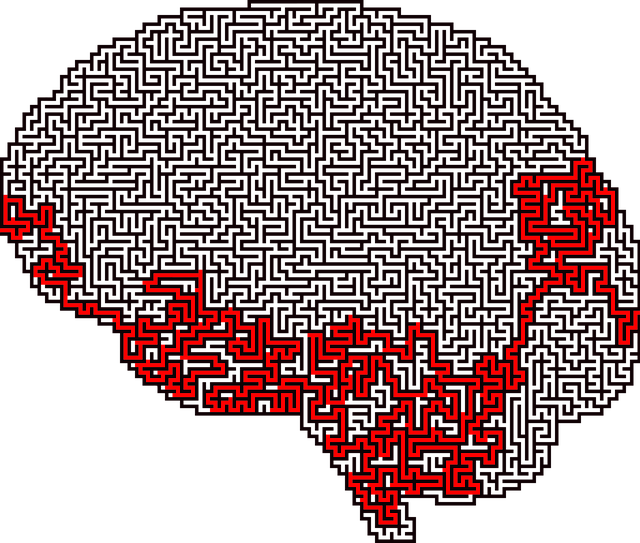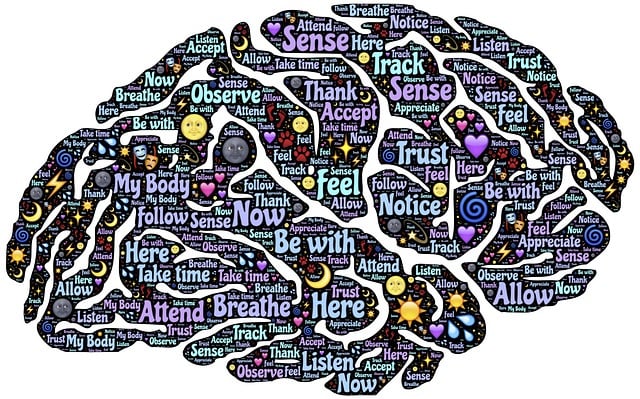Lone Tree Blended Families Therapy emphasizes the need for specialized mental wellness programs addressing unique challenges within blended families. Therapists must navigate complex dynamics, including step-parent relationships and sibling rivalries, to identify stress sources and craft tailored interventions. By combining qualitative and quantitative data, they gain comprehensive insights, enabling effective crisis management and supportive environments that foster positive mental wellness outcomes for all family members.
“Explore effective evaluation methods for mental wellness programs tailored to Lone Tree’s blended families. This comprehensive guide delves into assessing complex dynamics, from identifying stress sources within unique family structures to utilizing qualitative and quantitative data collection. We examine evidence-based practices such as CBT and family therapy, highlighting their role in addressing specific challenges.
Additionally, it explores monitoring progress through clear metrics, feedback loops, and longitudinal assessments, ensuring success. Community engagement and cultural sensitivity are key, with strategies focusing on collaboration with local groups and incorporating diverse backgrounds into therapeutic environments.”
- Assessing Individual and Family Dynamics
- – Understanding the unique needs of blended families
- – Identifying potential sources of stress and conflict
- – Utilizing qualitative and quantitative data collection methods
Assessing Individual and Family Dynamics

Evaluating mental wellness programs requires a deep understanding of individual and family dynamics, especially within diverse structures like blended families. Lone Tree Blended Families Therapy highlights the importance of tailored approaches that address unique challenges. These can include step-parent relationships, sibling dynamics, and adapting to new living arrangements. By assessing these aspects, therapists can identify potential sources of stress or conflict, enabling them to design interventions that support both individuals and families holistically.
Public awareness campaigns on mental health, such as those promoting burnout prevention strategies for healthcare providers, can inadvertently overlook the specific needs of blended families. Burnout prevention is crucial in this context, as family therapists play a vital role in supporting members through life’s transitions and challenges. Recognizing these dynamics allows for more effective program evaluations and ultimately contributes to improved mental wellness outcomes for all involved.
– Understanding the unique needs of blended families

Blended families present unique challenges when it comes to mental wellness, and tailored support is essential to address their distinct needs. These families often consist of step-parents, biological children, and sometimes children from previous relationships, each with their own emotional and psychological baggage. The dynamic within a blended family can be complex, with potential issues arising from step-parent-child relationships, sibling rivalry, or the adjustment to sharing resources and spaces.
Lone Tree Blended Families Therapy recognizes these complexities and offers specialized services to navigate through them. They understand that effective mental wellness programs for these families must consider the impact of previous traumas, cultural differences, and unique family structures. Providing a safe space for open communication and education on conflict resolution techniques can help blended families improve their relationships and overall well-being, while also emphasizing the importance of healthcare provider cultural competency training to ensure sensitive and effective support.
– Identifying potential sources of stress and conflict

Identifying potential sources of stress and conflict is a crucial step in developing effective mental wellness programs, especially for diverse populations like lone tree blended families. Therapists playing the role of mental wellness podcast series producers can employ various methods to uncover these hidden triggers. Through open-ended conversations, they encourage family members to share their experiences, revealing challenges related to step-parent dynamics, sibling rivalry, or even financial strain. These insights are vital for tailoring interventions that address specific needs.
By integrating crisis intervention guidance into the evaluation process, therapists can proactively manage potential conflicts. They might identify unhealthy communication patterns, unmet expectations, or past traumas that could escalate into larger issues. The goal is to foster a safe and supportive environment where families feel empowered to navigate their unique journeys towards positive thinking and mental wellness, guided by Lone Tree Blended Families Therapy’s comprehensive approach.
– Utilizing qualitative and quantitative data collection methods

Evaluating a mental wellness program involves a comprehensive approach that seamlessly blends qualitative and quantitative data collection methods. By combining structured surveys with open-ended interviews, researchers can gain a multifaceted understanding of participants’ experiences. This dual methodology allows for both precise measurements of symptoms, behaviors, and attitudes using standardized scales, as well as rich insights into the nuances of emotional regulation and personal growth journeys within programs like Lone Tree Blended Families Therapy.
Quantitative data provides objective benchmarks, identifying trends and correlations that highlight the program’s effectiveness in areas such as trauma support services. In contrast, qualitative data offers a deeper dive into participants’ subjective experiences, revealing how Mental Wellness Journaling Exercises Guidance might foster emotional awareness and resilience. This integration of perspectives ensures a well-rounded evaluation, offering actionable insights to optimize therapeutic interventions.
Evaluating mental wellness programs for blended families requires a nuanced approach, such as assessing individual and family dynamics through both qualitative and quantitative data. By understanding the unique needs of these families, identifying sources of stress and conflict, and adopting effective data collection methods, therapists like those at Lone Tree Blended Families Therapy can tailor interventions to promote holistic well-being. This targeted approach ensures that each member of the family receives the support they need to thrive in a complex and often challenging environment.














